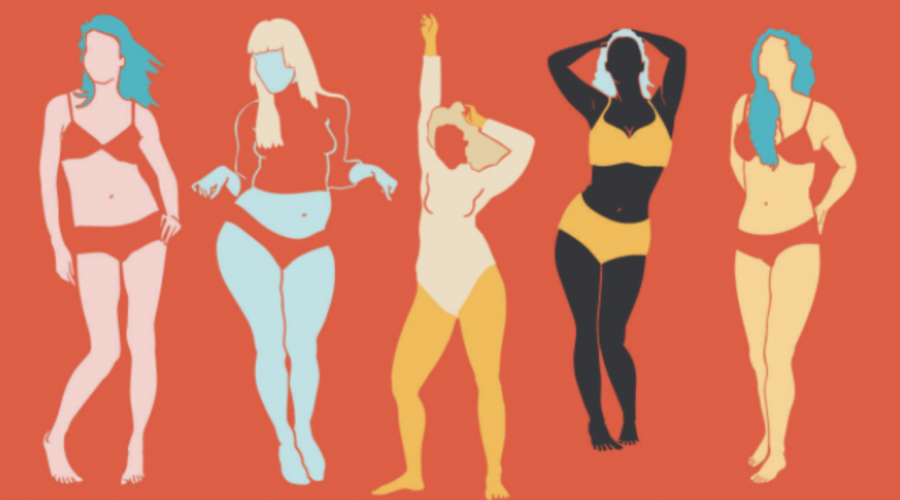How Social Media’s Portrayal of Body Positivity Can Do More Harm Than Good
Accepting and normalizing bodies can mean a lot to people. Accepting your own can make you happier and learn how to love and express yourself. (Photo from Healthline)
May 19, 2021
Do I look fat in this picture? Do I look pretty? Am I wearing too much or too little makeup? Should I just delete this? As my finger hovers over the share button I debate whether to post the image on social media or not.
The beauty standard is essentially a social concept that physical attractiveness is something that all men and women should attain and sustain. Scrolling through social media apps like TikTok or Instagram, I tend to find people commenting things on how they wish they could look like the person. Although it may seem like a compliment it can actually affect the way a person thinks about their body.
While others may say positive things, you may also find yourself seeing that other negative comment. There’s a level of difficulty to find yourself scrolling through an influencers social media who fits the beauty standard only to find that you think less of yourself because you aren’t tall and skinny or have perfect skin and perfect features. Plenty of men and women find that they compare themselves to supermodels or actors.
As an athlete myself, I too have trouble comparing my body to someone else. At times, I feel the need to look at myself in the mirror and point out what I think are flaws or imperfections about myself. The more I work out the stronger and bigger my muscles tend to get and I think that I’m getting fat. I may feel the need to change how I look or what I do to feel a type of pretty or normal.
This type of thinking is known as Body Dysmorphic Disorder (BDD). It’s known as a mental illness with an excessive or obsessive focus on a perceived flaw in appearance. It can lead to severe depression, anxiety and eating disorders if not treated. It’s important to not mix up Body Dysmorphia and insecurities. Though insecurities are valid feelings, they aren’t obsessive like Body Dysmorphia.
Insecurities and body image both circulate around the theme of body positivity. It focuses on the importance of acceptance of a person and their body no matter the weight, size or feature. But is the whole body positivity thing toxic? Yes and no.
Body positivity can be toxic when used excessively. Skimming through social media you can find people promoting the concept and saying that you should always want to feel good about your body. At what point do you decide that you’re feeling “good” about your bodies regardless of their state of health?
Singer and songwriter, Lizzo has also become known for her activism in body positivity. She frequently makes videos talking about her body and what she does with it is nobody else’s problem.
“I did the ten-day smoothie detox…I feel like as a big girl people just expect if you are doing something for health you’re doing it for a dramatic weight loss and that is not the case… that’s it I’m just a big girl who did a smoothie detox,” Lizzo said.
The difference between body positivity and body confidence is acceptance. The positivity movement preaches to accept all bodies regardless of their features. Body confidence teaches more about acceptance within yourself. It also involves learning more about self-love and self-worth.
Self-love is so important because it affects your mental and physical health. It’s easy to want perfection and to be hard on yourself. Setting healthy boundaries, staying true and giving yourself a break are all examples of loving and accepting yourself.
It’s easy to put too much pressure on and expect the most from yourself. Mental health days are so crucial because you get the chance to ease your mind so it can continue to happily function. Some ways to relax are to meditate, restrict your social media time, find a stress-relieving activity and talk to friends.
Always remember that there’s more to life than social media. Express and don’t be afraid to embrace who you are. Life consists of so much more than looking in a mirror.






